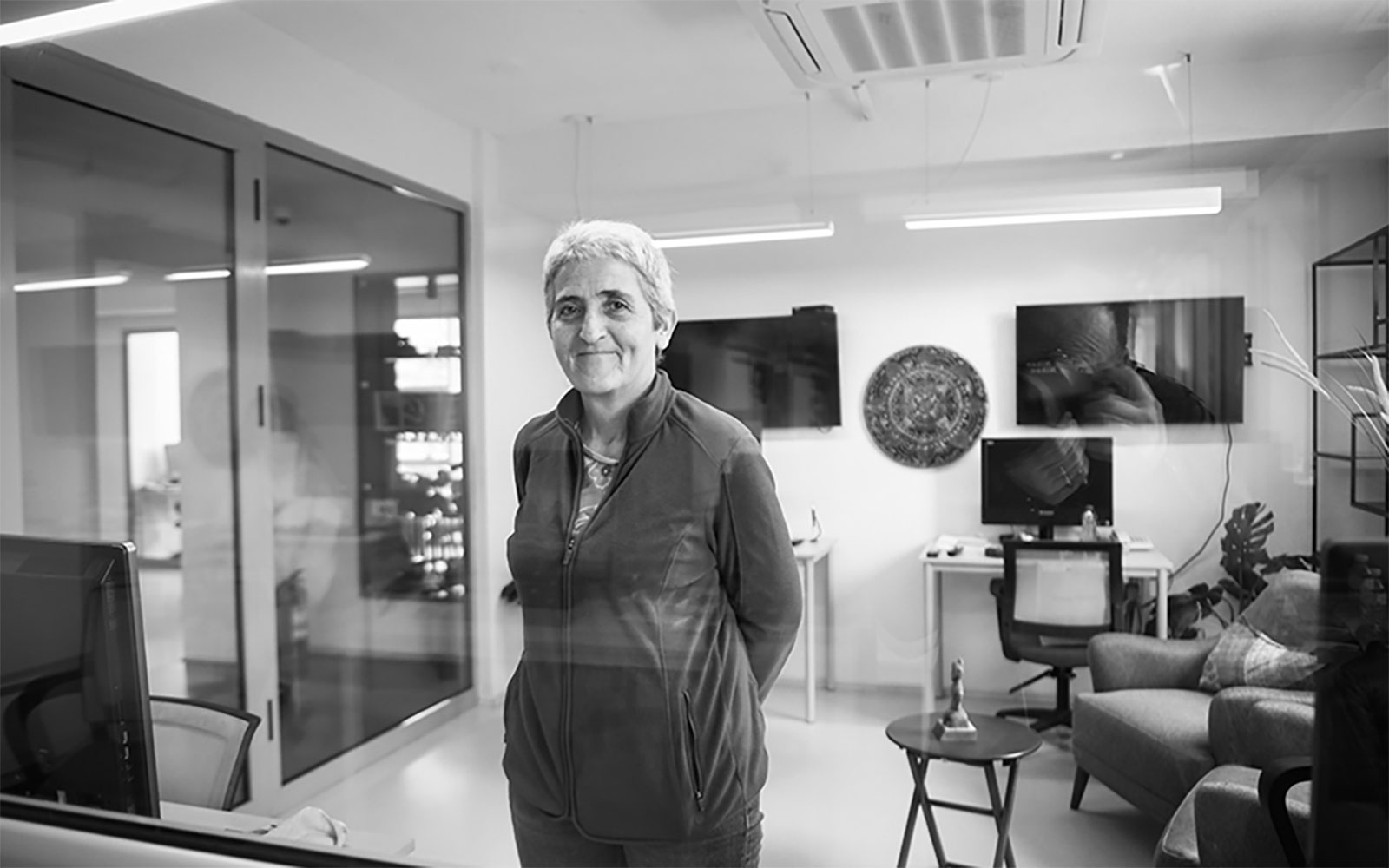
“I never really experienced problems as a woman working in the media sector - actually working in media gave me power that other women didn’t have. The power to change people’s opinions makes a huge difference,” says Flaka Surroi, owner of the Koha Group, one of the most successful independent media groups in Kosovo.
For the past twenty years, Flaka has led the Group, which runs a newspaper, national TV channel, a 24/7 news channel, a publishing house and a web portal. Her weekly column is also one of the most followed pieces of political commentary in Kosovo.
But this is not a career that she had planned.
“The company was my brother’s, but he decided to run for office, and he could not be a politician and owner of a media company at the same time. Someone had to take over. We were the only two siblings in the family, so I didn’t have much of a choice.”
When asked if she’s ever been accused of favouring her brother and his party in her news coverage, Flaka stresses Koha’s commitment to high journalistic standards and to holding all sides of the political spectrum accountable. “Everyone criticises us, from all parties and all sides – that’s how we know we’ve been doing our job.”
Koha’s story goes back to the early 1990s, at a time when media outlets from Kosovo were not allowed to register locally and were forced to register in Belgrade. “Obviously no one wanted to do that,” recalls Flaka.
Her brother Veton knew that he could register a company in any of the republics of former Yugoslavia, and registered Koha in Croatia as a weekly magazine.
In 1997 the weekly became a daily newspaper, Koha Ditore, a crucial tool to inform the local population during the war.
“At the time we could not transfer the newspaper files to the printer electronically,” says Flaka, “We had to physically take the documents of the latest edition of the newspaper to the printing press. It was very dangerous because the police could stop you at any time. The last copy we printed was on 23 March 1998. On 24 March the NATO bombings in Serbia started, and the police entered our building. The issue to be printed for the next day, never came our as the print was torched down. They destroyed all our archives, although luckily we had a copy of most of it stored elsewhere.”
At the time, the Koha team was composed of young journalists in their early 20s, who risked their lives reporting on the war until they became refugees, like those they reported on.
After a hiatus of one month, the newspaper restarted publication, in Macedonia becoming an essential source of information for refugees, with a circulation of more than 60,000 copies.
Twenty years later, the Covid-19 pandemic hit Koha harder than the war. A 50 percent drop in advertising revenue, combined with news available for free on social media and online magazines.
Eventually, Flaka had to take the difficult decision to stop printing what had once been the most influential daily newspaper in Kosovo and at its peak had both English and Macedonian language editions in addition to the Albanian one.
At the time, an EED emergency grant allowed Koha to cover operational costs and continue producing content for the web portal “EED was very helpful, it allowed us to keep functioning without sacrificing our independent editorial policy.”
For the moment the newspaper continues in a digital format. “You need lots of money to print a newspaper, and a functioning distribution network, and we do not have these things at the moment,” explains Flaka. “But we do not exclude the possibility of starting a printed edition again in the future.”
She explains that the advertising market is very saturated, not just for print media but also for television; liberalization of the cable TV industry means that hundreds of small channels compete for a small amount of advertising revenue.
Koha also experimented with a subscription model for the online platform to generate income, only to see that their premium content is routinely stolen by other media outlets in the region. “Who would buy a subscription if they can get the same material for free?”
Flaka admits that maintaining editorial independence and journalistic integrity is hard when competitors are stealing content and given the rise of media outlets backed by political parties. “No one is going to make us close down because we’re speaking ill of the government,” she explains. “There are subtler ways to influence you: not choosing your network for advertisements, accusing you of violating some obscure rule, forcing you to waste time in bureaucratic administrative procedures…”
Still, the team is committed to upholding high journalistic standards. “As a media company, if we want to have the role of shaping public opinion, we have to provide the public with the truth. And we’ve been doing this for the past 30 years. Many of the people working for us now were our junior journalists back in 1997. We have created a family, a team which will continue pursuing its original mission.”
* This designation is without prejudice to positions on status, and is in line with UNSC 1244 and the ICJ Opinion on the Kosovo Declaration of Independence.
This article reflects the views of the grantees featured and does not necessarily represent the official opinion of the EED.
Picture credits: Samir Karahoda